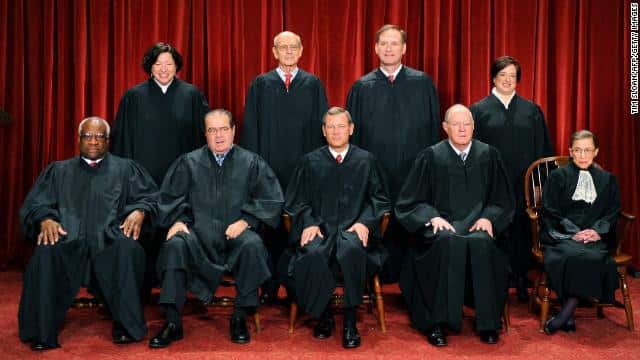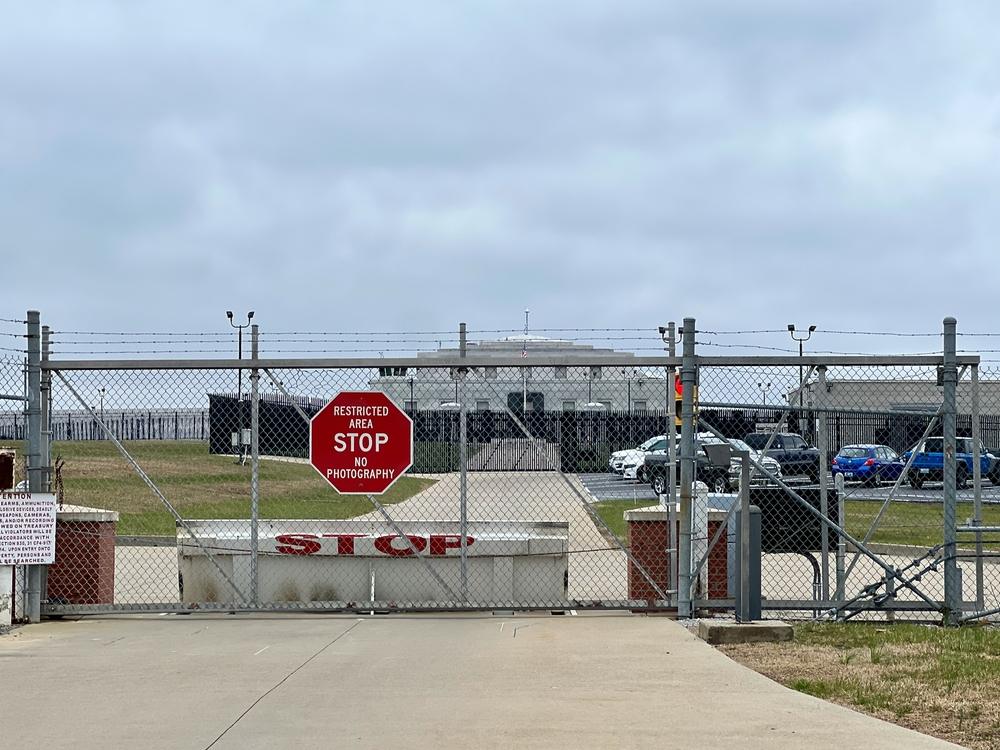
The Supreme Court’s ruling that allows law enforcement to collect DNA samples from arrested suspects without a warrant passed by a 5-4 margin last week with unlikely partners on both sides of the ruling.
An uncommon alliance of Justices Ruth Bader Ginsburg, Elena Kagan, Sonia Sotomayor, and Antonin Scalia sided with a broad interpretation of the Fourth Amendment’s protection against unreasonable search and seizure. On the other side of the ruling was an equally unlikely coalition of justices—Anthony Kennedy, John Roberts, Clarence Thomas, Stephen Breyer, and Samuel Alito.
Justice Anthony Kennedy wrote the majority opinion calling DNA swabbing a “minor intrusion” comparable to photographing and fingerprinting that is a reasonable under the Fourth Amendment.
“When officers make an arrest supported by probable cause to hold for a serious offense and they bring the suspect to the station to be detained in custody, taking and analyzing a cheek swab of the arrestee’s DNA is, like fingerprinting and photographing, a legitimate police booking procedure that is reasonable under the Fourth Amendment,” Kennedy wrote.
Justice Scalia wrote the dissent, arguing that the ruling was a serious incursion on the Fourth Amendment’s ban against unreasonable search and seizure. “Make no mistake about it,” Scalia wrote. “As an entirely predictable consequence of today’s decision, your DNA can be taken and entered into a national DNA database if you are ever arrested, rightly or wrongly, and for whatever reason.”
He added that “solving unsolved crimes” is a noble objective, but it “occupies a lower place in the American pantheon of noble objectives than the protection of our people from suspicionless law-enforcement searches.”
Texas Republican Sen. Ted Cruz had even stronger words for the justices decision that upheld a Maryland law that allows law enforcement to collect DNA samples from arrested suspects without a warrant.
“Today’s unfortunate U.S. Supreme Court ruling in Maryland v. King, by a vote of 5-4, expands government power, invades our liberty, and undermines our constitutional rights,” Cruz said in a Monday evening statement. “The Court held that the police can forcibly take DNA samples from people who have been arrested — but have not been tried or convicted — of a serious offense. So now the government can capture, without a search warrant, the most personal information about an individual, and use it to search vast databases for unrelated offenses.”
Cruz, who clerked for Justice William Rehnquist, pointed out that all 50 states already collect the DNA of convicted felons, and that the “intrusion of liberty will matter only for those not convicted.”
“All of us should be alarmed by this significant step towards government as Big Brother. The excessive concentration of power in government is always inimical to liberty, and a national database of our DNA cannot be reconciled with the Fourth Amendment,” Cruz continued.
“Accumulating DNA from arrestees—without warrant or probable cause to seize the DNA—is not designed to solve the crime for which the person has (rightly or wrongly) been arrested. Rather, it’s to test the DNA against a national database to potentially implicate them in other unsolved crimes,” he added. “But the Constitution requires particularized suspicion of a specific crime; indeed, the Fourth Amendment was adopted to prohibit the British practice of ‘general warrants’ targeting individuals absent specific evidence of wrongdoing.”
Cruz said it should be necessary for the government to obtain a search warrant if there is a legitimate cause for seizing DNA, calling this check on government’s power “what our Framers intended.”
“Law enforcement is a paramount function of government. But we cannot allow that government function to run roughshod over the Bill of Rights,” he said. “And, as recent events involving the IRS have demonstrated, unchecked government power — and intrusive personal databases maintained on the citizenry — poses real risks to our liberty.”
Steven R. Shapiro, legal director of the American Civil Liberties Union, agreed with the court minority that the ruling creates an excessively broad exception to the Fourth Amendment.
“Today’s decision creates a gaping new exception to the Fourth Amendment. As Justice Scalia’s dissent convincingly demonstrates, DNA testing of arrestees has little to do with identification and everything to do with solving unresolved crimes,” Shapiro said. “While no one disputes the importance of that interest, the Fourth Amendment has long been understood to mean that the police cannot search for evidence of a crime—and all nine justices agreed that DNA testing is a search—without individualized suspicion. Today’s decision eliminates that crucial safeguard. At the same time, it’s important to recognize that other state laws on DNA testing are even broader than Maryland’s and may present issues that were not resolved by today’s ruling.”
A disturbing trend continues in the U.S. politic that reveals a schism not so much between Republican and Democrat, liberal and conservative, but rather with those more concerned with creating a culture free of danger even if that means forsaking freedoms fought and died for by our Founding Fathers.










